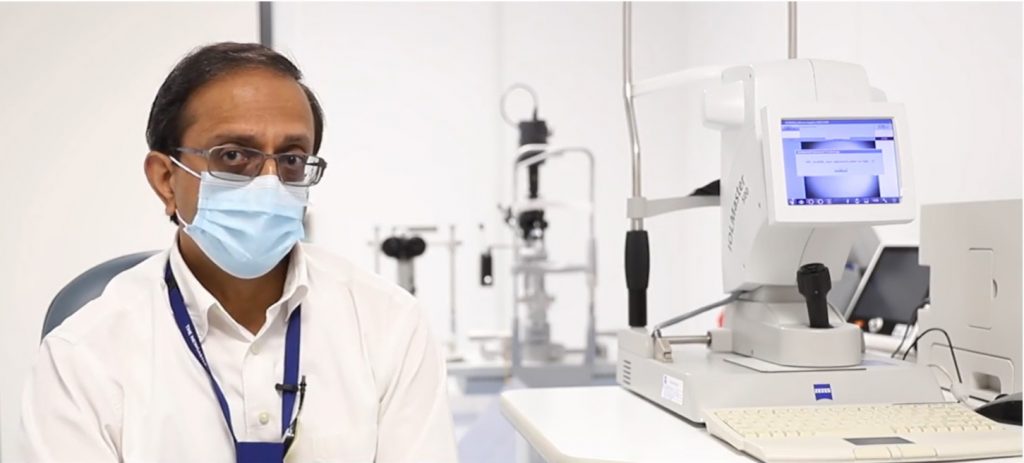A state-of-the-art theatre ‘hub’ dedicated to cataract surgery has opened its doors to patients as part of a Newcastle Hospitals initiative
Newcastle Westgate Cataract Centre – a three-theatre, purpose built clinical facility– will perform up to 1,000 cataract procedures a month, which is almost double the number undertaken before the coronavirus pandemic.
The centre has been designed to ensure that patients have exceptional clinical care from the expert team at the Trust. It has been streamlined to ensure that patients have no waiting – meaning that each patient will spend between just 40 minutes to an hour in the unit rather than the usual time of about 3 hours.
Personalised care is provided throughout by a dedicated nurse who checks in the patient and remains with them throughout their journey. The patient sits in a special chair throughout and is wheeled into theatre for their day case procedure.
After being given information on aftercare, their nurse will escort them to their waiting transport just outside the Centre.
The ophthalmology team in Newcastle provide cataract surgery to patients across the region and every year receive hundreds of referrals. Just over a fifth of patients (21%) live within Newcastle others come from across the North East.
Demand continues to increase year-on-year and cataract surgery is now the most commonly performed surgery in the NHS. The Royal College of Ophthalmologists estimates that demand will continue to rise by 25% over the next 10 years and by 50% over the next 20 years.

Consultant Ophthalmologist and Clinical Lead, Krishnamoorthy Narayanan, said: “Prior to the pandemic, all patients were seen at the RVI and we were already seeing pressures on our waiting lists. Inevitably, waiting times have increased due to the pandemic.
“This is a very distressing situation for patients as cataracts can have a significant impact on quality of life and independence. It has been very difficult for the team to tell patients and their doctors that we couldn’t offer them surgery as quickly as they would wish.
“Cataract surgery is a very quick, but very highly technical operation which makes a huge impact on the quality of life as the improved vision means that the patient can go back to their normal activities.”
To find the best solution for patients, the ophthalmology team worked closely with estates colleagues and building contractors Vanguard, drawing up plans to secure a £7million investment for the state-of-the-art cataract theatre centre on the Campus for Ageing and Vitality site. (former Newcastle General Hospital)
To build something using traditional construction methods would have taken around two years to complete but this build – end to end from conception to completion and including commissioning – has taken just seven months.
The team will only be operating on cataracts all through the working week. Some patients including those who require a general anaesthetic, will still require their surgery at the Royal Victoria Infirmary.
“When the centre is fully operational we expect to operate between 200-250 cataract cases every week,” added Mr Narayanan.
“Due to the unique design there is no waiting involved which is great for our patients. Appointment times are staggered so while we are seeing high patient numbers, their safety has been foremost when planning this service.
“A huge amount of preparation goes into getting the patient ready for the operation well before the operation date. We have also managed to cut out unnecessary waiting and delays on the day of surgery.
“We are very excited and delighted to be able to provide our expertise and improved experience to the people of the North-east.”
Chief Executive Dame Jackie Daniel said: “It’s fantastic that we can safely offer so many more patients the chance to have this important surgery and I am incredibly proud of the adaptability and creativity of the teams who have worked so hard to achieve this.
“This is a great example of transformational thinking to provide a much swifter service with a clear focus on patient care and experience. It’s a model which I’m certain will be rolled out across the wider NHS.”
